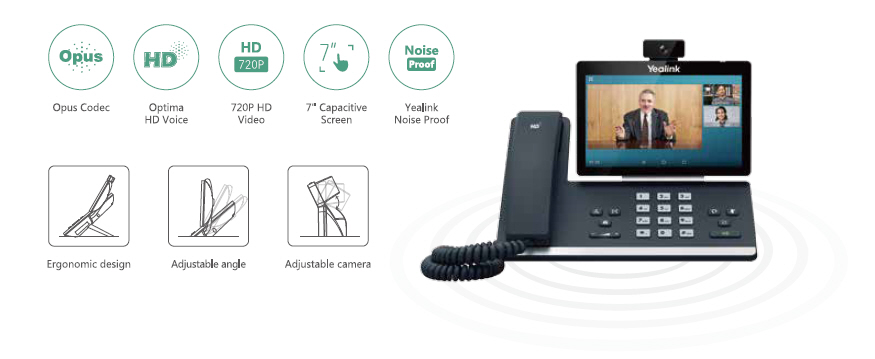Introduction
When it comes to running a successful business, communication is key. Having an efficient and reliable phone system is crucial for effective communication both within the company and with clients and customers. In today's digital age, there are a plethora of options available for business phone systems, ranging from traditional landlines to Voice over Internet Protocol (VoIP) services. With so many choices, it can be overwhelming to determine which system is best suited for your specific needs. In this article, we will explore the various factors to consider when choosing a business phone system and provide valuable insights to help you make an informed decision.

Choosing the Best Business Phone Systems for Your Needs
Selecting the right business phone system involves evaluating several factors, such as the size of your company, budget constraints, scalability requirements, and desired features. By carefully assessing these aspects, you can identify a phone system that aligns with your specific needs.
1. Assessing the Size of Your Company
Before diving into the different types of phone systems available, it's essential to evaluate the size of your company. Are you a small startup with only a handful of employees or a large corporation with multiple departments? Understanding your company's size will help determine the scalability requirements and potential growth in the future.
2. Analyzing Budget Constraints
Budget is another crucial VoIP telephony aspect when choosing a business phone system. Determine how much you are willing to invest in your communication infrastructure. Keep in mind that while some systems may have higher upfront costs, they may offer cost savings in the long run.
3. Considering Scalability Requirements
As your business grows, so will your communication needs. It is important to choose a phone system that can easily scale with your company's growth without significant disruptions or additional expenses.
4. Identifying Desired Features
Different businesses have varying communication requirements. Consider the specific features that are essential for your company's operations. Some commonly desired features include voicemail, call forwarding, auto-attendant, conference calling, and mobile integration.
5. Evaluating Call Quality and Reliability
A reliable phone system is crucial to ensure uninterrupted communication with clients and customers. Look for a provider that offers high call quality and has a proven track record of reliability.
6. Exploring VoIP Phone Systems
VoIP phone systems have gained popularity in recent years due to their flexibility, cost-effectiveness, and advanced features. VoIP utilizes the internet to transmit voice data instead of traditional telephone lines. This voip phone service technology allows businesses to make calls from anywhere with an internet connection.
6 FAQs about Choosing the Best Business Phone Systems
Q: What is a VoIP phone system? A: A VoIP phone system uses the internet to transmit voice data, allowing for more flexibility and cost savings compared to traditional landlines.
Q: Are business phone systems compatible with mobile devices? A: Many modern business phone systems offer mobile integration, enabling employees to make and receive calls on their smartphones or tablets.
Q: How can I ensure high call quality with a VoIP phone system? A: To ensure high call quality, choose a reputable VoIP service provider with a robust network infrastructure and prioritize a stable internet connection.
Q: Can I keep my existing phone numbers when switching to a new business phone system? A: In most cases, you can port your existing phone numbers to a new business phone system. However, it is advisable to confirm this with the service provider beforehand.
Q: Will my business phone system be able to handle multiple concurrent calls? A: The capacity for handling multiple concurrent calls depends on the specific system you choose. It is important to discuss your requirements with the service provider to ensure adequate call capacity.
Q: What is the difference between on-premise and cloud-based phone systems? A: On-premise phone systems require physical hardware installed at your business location, while cloud-based systems operate through the internet without the need for on-site equipment.
Conclusion
Choosing the best business phone system for your needs is a decision that should not be taken lightly. By considering factors such as company size, budget constraints, scalability requirements, desired features, call quality, and exploring options like VoIP phone systems, you can make an informed choice that will enhance communication within your organization and leave a positive impression on clients and customers. Remember to assess your specific needs and consult with reputable service providers to ensure a seamless transition to your new business phone system.